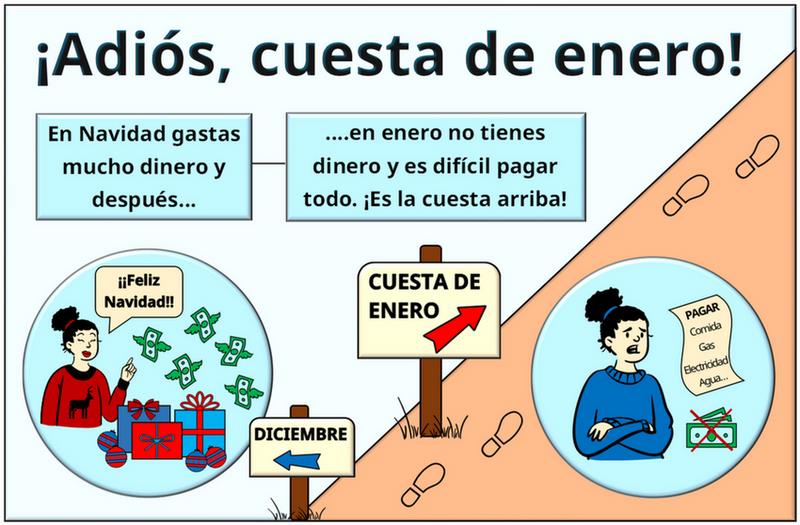- Blog
- Spanish Idiomatic Expression for saying...
Spanish Idiomatic Expression for saying goodbye to January
Here is a popular Spanish saying for farewell to January!! A month that is usually a bit difficult financially after spending so much during Christmas and feels like walking up hill. This is when we use this idiomatic expression "Cuesta de enero". Check the pict ;-)

MORE ABOUT "CUESTA" AND "COSTAR"
"Cuesta" comes from the verb "Costar", and there aredifferent meanings:
1. Costar: as a verb means "To cost", and it is used to ask for prices.
When the verb “costar” is conjugated with a single thing, we use “cuesta + thing”.
Example: ¿Cuánto cuesta un café? > How much a coffee cost?
When the verb “costar” is conjugated with a plural thing, we use “cuestan + plural thing”.
Example: Los libros cuestan veinte euros. > The books cost 20 euros.
2. Costar: as a verb also means how hard is to perform or do something.
We use the pronouns “me > for I”, “te > for you”, “le > for he or she”, “nos > for we”, “os > for you guys”, “les > for they” + “cuesta”
Examples : Me cuesta mucho estudiar todos los días. > It is hard for me to study every day.
A mi hermano no le cuesta hacer ejercicio. > It is not hard for my brother exercises.
3. Cuesta arriba & Cuesta abajo: as a noun means "Uphill or Downhill". Sometimes when is obvious that you are referring to an uphill or to a downhill, the words "arriba" or "abajo" are omitted.
Examples:
Para ir a mi casa tienes que subir una cuesta arriba. > To get to my home you must climb an uphill.
No me cuesta caminar cuesta abajo. > It is not hard for me to walk downhill.
I hope you find it interesting, and it helps to enrich your colloquial Spanish!!!
Muchas gracias,
¡Hasta la próxima! :-)
Your Spanish Tutor
Vanesa

